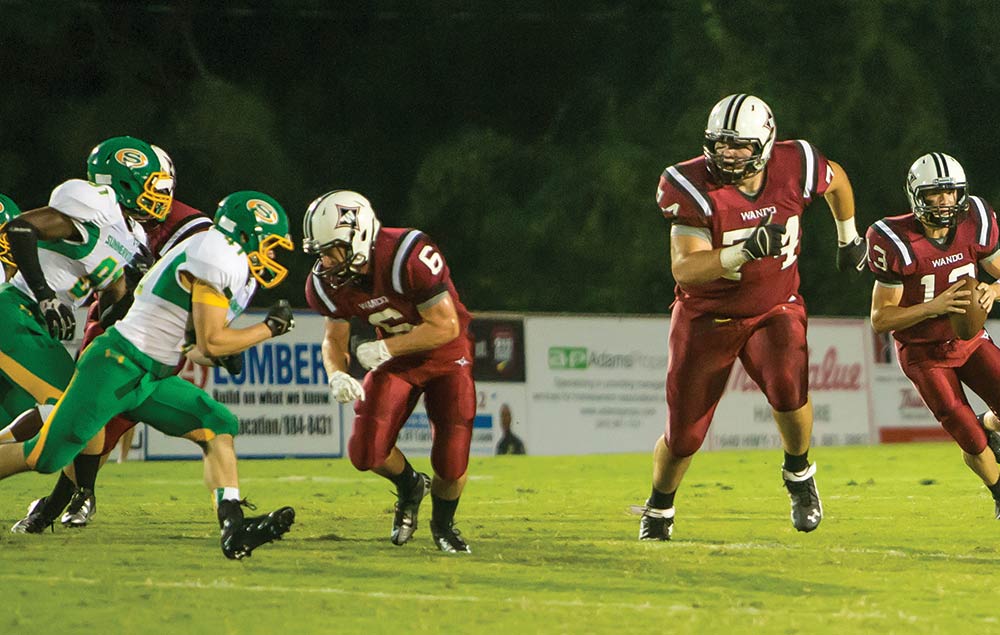
Your high school football team is behind by a touchdown at the 10-yard line with a second left on the clock. What are they trying to decide in that huddle? To run? A pass? … To get together after the game and study for that AP Calculus exam?
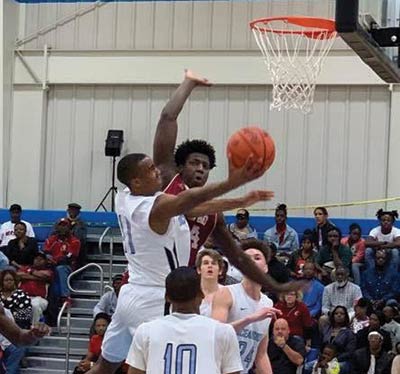
At Mount Pleasant’s outstanding secondary schools, the answer could be all three. That’s because the tradition of the student-athlete is so strong here that sports and academics are inseparable.
Coach Chad Grier, director of athletics at Oceanside Collegiate Academy, might have been speaking on behalf of all his fellow sports mentors when he said, “Sports are critical to the high school experience. We recognize how important a part of a total education sports is and that athletics should be a part of the total education of every student.”
At Wando High School, Robert Hayes, coach and director of athletics, echoed that belief, stating, “A student who participates in extracurricular activities has the opportunity to enhance his or her educational experience. And playing a sport is one of the best ways to do just that.”
Coach Dale Hoover, athletic director at Palmetto Christian Academy, concurred. “Generally, athletes are also good students. We make sure that they understand that their studies come first. If they don’t keep up with their academics, they don’t get to play sports. In life, you always have to make choices,” Hoover added, “and you have to make sacrifices … choose what’s important to you, and make the time for what you choose. That’s one of the life lessons sports teaches you.”
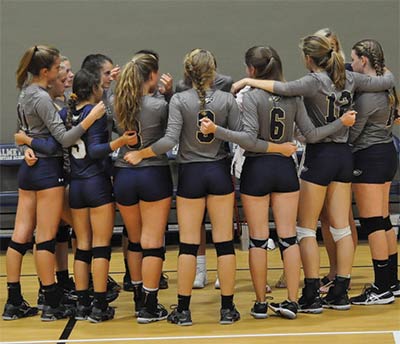
That’s all well and good to say for these dedicated educators who have chosen to focus on athletics. But how do their student-athletes feel about it?
Oceanside senior Joey Boylston just committed to the University of Utah to play lacrosse after playing that sport and football at the high school level. He said, “Sports and academics are a good fit. I’ve never felt any conflict between the two. If you work hard, you can excel both at sports and at academics.”
His classmate Valentina Mosquera, a soccer attacking midfielder aiming to play at a Division I college, said she “would recommend to any incoming student that they get involved in sports, even if they’ve never played before.” She continued, “Committing to something outside the classroom really helps with time management. When I have homework, I have to set aside the time to do it before or after practice. I can’t just ignore it.”
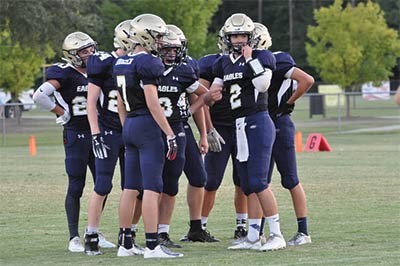
In addition to time management, Wando football quarterback and baseball center fielder Will Pickens feels that playing high school sports “is a great experience.” He added, “I think it has really helped my education. I love being a team player because it teaches you not to focus just on yourself. Others are depending on you.”
At Palmetto Christian Academy, Mack Poston is one of those unusual football players who goes both ways on offense and defense “in part because we’re a smaller school.” Poston doesn’t anticipate playing at the college level but feels his high school academics have prepared him for a major in civil or mechanical engineering at a first-rate university such as Georgia or Clemson. “It can be hard to come off a tough practice then study for a difficult test,” he said, “especially when you’re really tired out. But that’s just part of being in high school. I think it’s made me a better person by learning to balance the two.”
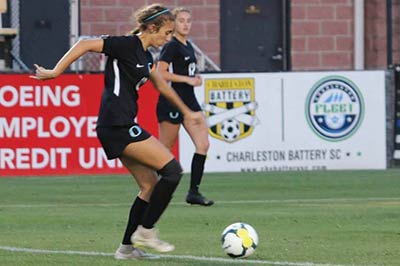
Palmetto Christian senior Emily Campbell plays both basketball and tennis and hopes to continue playing both at the college level, possibly at the University of South Carolina. “Our coaches want us to focus on our sports while not neglecting our studies. They’re very flexible. If a big exam is coming up, they’ll let us study before it and practice later. Or, if we’re getting extra help from one of our teachers, they’ll let us show up for practice when we can.” Free periods and study halls help Campbell get all her schoolwork done. She added, “I think that sports have been a bonus, not a drawback, to my studies.”
A recurring theme for coaches and athletes alike is the significance of being part of a team effort.
Coach Grier said, “Team sports provide students with an opportunity to learn accountability, as well as an opportunity to get what they earn. They learn the character traits that will serve them well in life after school.”
Coach Hayes observed, “They’re all going to be on teams of one kind or another for the rest of their lives. Sports helps them learn early on what it means to be a good teammate.”
Coach Hoover noted, “When you combine sports with academics, you are interacting with people on the playing field and in the classroom in ways that will benefit you for the rest of your life. One of the things that brings students together,” he added, “are the tough times they go through. Things that are easy, we tend to forget. Things that are hard stick with us.”
Do these coaches and their players have it right? Or are they just defending their positions? A study by the International Journal of the History of Sport, quoted in the respected U.K. newspaper The Guardian, concluded that for student-athletes having “‘dual careers’ provides motivation for training and preparation, stimulating athletes intellectually and relieving stress.”
In Mount Pleasant’s high schools, the results are clearly in: Athletics and academics are complementary, not oppositional.
Nonetheless, as Coach Hayes put it, “When you come back to your reunion, you’re not going to be talking about your tough final exam. You’re going to be talking about the big game at Summerville or the upset win at West Ashley.”
P.S. When your team broke that huddle, they threw a screen pass for the TD and the win! Then, they poured a bucket of Gatorade over the head of their calculus teacher.
By Bill Farley

Leave a Reply